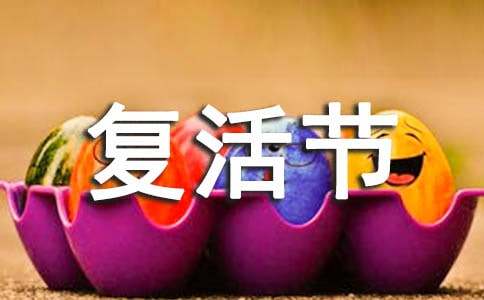復活節的由來中英互譯
復活節和圣誕節一樣,是外來的節日。也是基督教紀念耶穌復活的節日。傳說耶穌被釘死在十字架上,死后第三天復活升天。下面小編就通過中英文為大家介紹復活節的由來。

As with almost all "Christian" holidays, Easter has been secularized and commercialized. The dichotomous nature of Easter and its symbols, however, is not necessarily a modern fabrication.
和其它基督教節日一樣,復活節正慢慢“被世俗”和“被商業”。即便如此,復活節的這兩個性質和它的標志并不是必然的“現代產物”。
The history of Easter 復活節的歷史
Since its conception as a holy celebration in the second century, Easter has had its non-religious side. In fact, Easter was originally a pagan festival.
“復活節是神圣的慶典”的概念在公元200年已經形成,自那時起,復活節就站在了非宗教的一方。而事實上,最初的復活節是異教徒的節日。
The ancient Saxons celebrated the return of spring with an uproarious festival commemorating their goddess of offspring and of springtime, Eastre. When the second-century Christian missionaries encountered the tribes of the north with their pagan celebrations, they attempted to convert them to Christianity. They did so, however, in a clandestine manner.
古撒克遜人慶祝春至時非常熱鬧,因為這也紀念他們祖先和春天的“復活”。在公元200年,基督教的傳教士并偶然來到這個擁有異教慶典的北方部落。這些傳教士嘗試讓撒克遜人改信基督教,而他們使用的方法非常隱秘。
It would have been suicide for the very early Christian converts to celebrate their holy days with observances that did not coincide with celebrations that already existed. To save lives, the missionaries cleverly decided to spread their religious message slowly throughout the populations by allowing them to continue to celebrate pagan feasts, but to do so in a Christian manner.
早期的基督教人為了慶祝他們神圣的節日而在儀式中自殺,然而這些儀式并沒有與以前的.慶祝儀式相類似。為了拯救生命,傳教士略施小計,在人群中慢慢散布神明的信息,謊稱神明允許人們繼續慶祝異教節日,但是要使用基督教的方式進行慶祝。
As it happened, the pagan festival of Eastre occurred at the same time of year as the Christian observance of the Resurrection of Christ. It made sense, therefore, to alter the festival itself, to make it a Christian celebration as converts were slowly won over. The early name, Eastre, was eventually changed to its modern spelling, Easter.
就這樣,復活節在同年出現了,而且被當作耶穌復活的基督教儀式。因此,這個節日就慢慢被改變,漸漸轉變為基督教的一個節日。于是,人們漸漸皈依基督教。而復活節早期的名字Eastre,最后也被改成流傳至今的拼法Easter。
【復活節的由來中英互譯】相關文章:
諺語中英互譯08-12
莎士比亞名言中英互譯03-20
運輸英語中英互譯匯總08-24
婚姻法中英互譯08-24
莎士比亞的名言名句中英互譯07-18
孔子名言語錄中英互譯06-30
談虎色變成語介紹(中英互譯)08-21
關于回憶的英語句子(中英互譯)12-04
中英互譯版經典唯美愛情名言08-06
翻譯資格考試中英互譯試題08-12